Umardo-Yanubi border clashes
| Umardo-Yanubi border clashes | |||||
|---|---|---|---|---|---|
| |||||
| Belligerents | |||||
|
|
| ||||
| Casualties and losses | |||||
|
| ||||

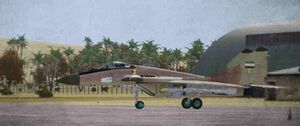
The Umardo-Yanubi border clashes were a series of incidents and skirmishes between Umardwal and Yanuban between 1997 and 2004, when the border was finalized in the Treaty of Dunborough.
Background
During the Zege Regime in Yanuban, relations between Umardwal and Yanuban were amicable. When the military coup occurred and Zege was assassinated in 1997, the junta set about addressing what it saw as long standing grievances between the two countries. Dating back to the end of the colonial period the border between Umardwal and Yanuban was ill-defined. At various times, especially during the First and Second Great Wars the countries had sparred over the specifics, but there had been no resolution.
The border clashes of the late 90s and early 2000s was a continuation of this dispute.
Clashes
1997 Invasion
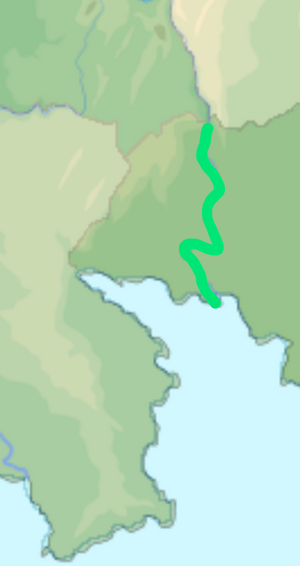
In the early morning hours of July 15, 1997, just days after the assassination of President Zege, Yanuban launched a surprise invasion of Umardwal. Under the cover of darkness, Yanubi armored divisions surged across the Sahil al-Kabir plain, a vast expanse of arid flatland that stretched along the border. The element of surprise, coupled with the superior mobility of their armored forces, allowed the Yanubis to quickly overrun Umardi border outposts and advance deep into enemy territory. The battle of Wadi al-Ghazal occurred from July 16-18. It was a fierce tank battle ensued in the narrow confines of the Wadi al-Ghazal, resulting in heavy casualties on both sides. The Yanubis, despite their numerical superiority, struggled to maneuver in the difficult terrain and faced stiff resistance from entrenched Umardi anti-tank units. (Yanubi casualties: approx. 2,500; Umardi casualties: approx. 1,800). During the battle of Qalat al-Sahra, from July 22-25, Yanubi forces laid siege to Qalat al-Sahra, a strategic Umardi stronghold guarding the approaches to the Nahr al-Shakk. After days of intense bombardment and close-quarters combat, the fortress fell, opening a path for the Yanubis to reach the river. (Yanubi casualties: approx. 3,800; Umardi casualties: approx. 2,100). The battle of Jisr al-Nahr, from July 28-August 1, saw the Yanubis attempted to cross the Nahr al-Shakk at Jisr al-Nahr, a vital bridge connecting the two sides. However, they were met with fierce resistance from Umardi forces, who had established well-prepared defensive positions on the eastern bank. The battle resulted in a bloody stalemate, with neither side able to gain a decisive advantage. (Yanubi casualties: approx. 4,200; Umardi casualties: approx. 3,500)
By the end of August, the Yanubis had secured the entire western bank of the Nahr al-Shakk, achieving their initial objective of seizing the territory they claimed as rightfully theirs. However, their advance had stalled, and they faced a determined Umardi defense that prevented them from crossing the river. The stalemate would last for another year and a half, mostly being fought through riverine commando raids, and artillery battles.
1999 Umardi Summer
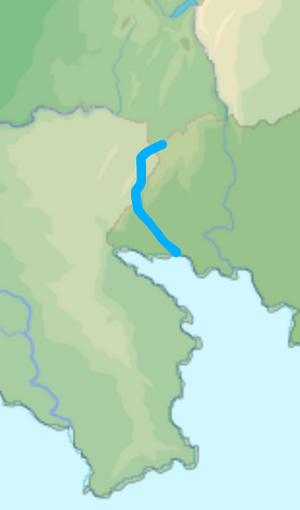
In January of 1999, the Sylirians launched a devastating counter-offensive. Utilizing their superior airpower, they initiated a series of airstrikes, targeting key Yanubi military installations, supply depots, and communication centers. Port cities such as Marsa al-Fath, and border towns like Madinat al-Hadid were struck with precision, disrupting Yanubi logistics and sowing chaos among their ranks. In the ensuing days, Yanubi forces scrambled to establish anti-air defenses, but the Umardi air campaign continued unabated, providing crucial air support for the ground offensive. As Umardi jets pounded Yanubi positions, armored divisions surged across the flat Sahil al-Kabir plain, exploiting the terrain to their advantage. The Yanubi line, weakened by the relentless airstrikes and facing a numerically superior force, began to crumble. In February, the Sylirians achieved a major breakthrough, capturing the strategic town of Qaryat al-Khadra and opening a path towards the Nahr al-Shakk. By March, the Yanubi front had collapsed entirely, and they were forced into a hasty retreat, abandoning most of their territorial gains.
2000s clashes
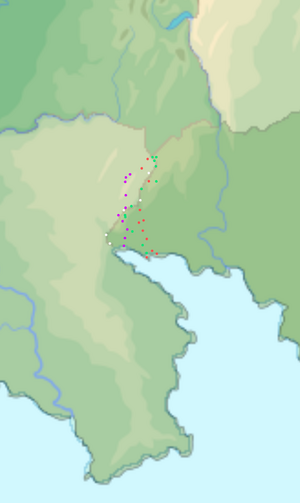
2000, red
2001, green
2002, purple
2003, white.
2000
Madinat al-Hadid: January 4, 2000 Umardi forces launched a surprise attack on the city, capturing several key government buildings and infrastructure. After a fierce battle, Yanubi forces regained control, but the city suffered extensive damage, including the destruction of several factories and warehouses.
Ras al-Bahr: January 10, 2000 Yanubi naval forces engaged in a brief but intense skirmish with Umardi patrol boats, resulting in minor damage to both sides. This incident highlighted the growing naval tensions in the region.
Wadi al-Dhahab: January 16, 2000 Umardi special forces conducted a daring raid on a Yanubi ammunition depot in the valley, destroying a significant amount of munitions and disrupting Yanubi artillery operations.
Jabal al-Zaytoun: January 22, 2000 A Yanubi counterattack to retake the mountain resulted in a bloody stalemate, with both sides suffering heavy casualties. The mountain remained a contested zone, subject to frequent artillery duels and sniper attacks.
Jabal al-Nar: February 12, 2000 A brief but intense firefight erupted between Yanubi and Umardi patrols vying for control of strategic high ground. Three Yanubi soldiers were killed in the exchange, with no reported Umardi casualties.
Wadi al-Hayya: March 28, 2000 A prolonged artillery duel caused widespread damage to agricultural infrastructure in the fertile valley, disrupting local farming communities and contributing to food shortages. No casualties were reported.
Qaryat al-Qadima: May 19, 2000 A Yanubi incursion into the village resulted in a tense standoff with local residents and Umardi border guards. The situation was defused through diplomatic channels, but heightened tensions between the two communities.
Ras al-Bahr: October 5, 2000 Yanubi snipers targeted Umardi fishing boats operating near the cape, resulting in the death of two fishermen and damage to several vessels. This incident further escalated tensions and led to increased naval patrols in the area.
Wadi al-Dhahab: November 23, 2000 A Umardi ambush on a Yanubi supply convoy resulted in the destruction of several vehicles and the deaths of eight Yanubi soldiers. The valley, a key route for Yanubi logistics, was temporarily closed, hindering their resupply efforts.
Jabal al-Zaytoun: December 16, 2000 An intense firefight erupted between Yanubi and Umardi troops vying for control of the mountain's strategic overlook. Five Yanubi and three Umardi soldiers were killed in the exchange, with several others wounded.
Bir al-Amir: December 29, 2000 A Umardi artillery barrage targeted the Yanubi-controlled well, a vital water source for the surrounding area. The well was heavily damaged, disrupting local water supplies and fueling resentment among the civilian population.
2001
Ayn al-Ghazal: January 8, 2001: A surprise Yanubi raid on the spring resulted in the capture of several Umardi soldiers and the contamination of the water supply with explosives.
Jabal al-Aswad: February 2, 2001: An intense artillery duel erupted between Yanubi and Umardi forces positioned on the mountain, resulting in the destruction of several observation posts and communication towers.
Wadi al-Salaam: March 15, 2001: A Yanubi ambush on a Umardi patrol in the valley resulted in the deaths of five Umardi soldiers and the capture of two armored personnel carriers.
Qaryat al-Jadida: April 29, 2001: A Umardi airstrike on the village, believed to be harboring Yanubi insurgents, caused significant damage to civilian infrastructure, including a school and a mosque.
Ras al-Jebel: May 14, 2001: A Yanubi naval patrol boat was sunk by a Umardi anti-ship missile, resulting in the deaths of all crew members. This incident marked a significant escalation in naval hostilities.
Wadi al-Rumman: June 3, 2001: Umardi forces launched a surprise offensive in the valley, capturing several Yanubi outposts and inflicting heavy casualties.
Jabal al-Nisr: July 20, 2001: Yanubi forces, supported by artillery and airstrikes, attempted to retake Eagle Mountain but were repelled by a determined Umardi defense.
Bir al-Malik: August 11, 2001: A series of skirmishes around the well, a vital water source for both sides, resulted in numerous casualties and temporary disruptions to the water supply.
Madinat al-Naft: September 6, 2001: A Yanubi sabotage operation targeted the city's oil refinery, causing a massive explosion and fire that disrupted production for several weeks.
Ras al-Junub: October 24, 2001: Umardi commandos conducted a daring raid on a Yanubi radar station on the cape, disabling the facility and temporarily blinding Yanubi air defenses in the region.
Wadi al-Milh: November 18, 2001: A Yanubi offensive to capture the valley's salt mines was met with fierce resistance from Umardi troops, resulting in a bloody stalemate.
Jabal al-Qamar: December 9, 2001: Under cover of a moonless night, Umardi forces launched a surprise attack on the mountain, capturing several Yanubi positions and inflicting heavy casualties.
2002
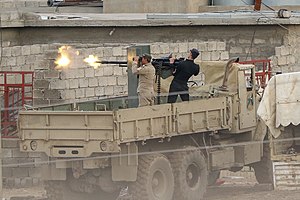
Ayn al-Shams: January 2, 2002: A Yanubi sniper attack on a Umardi water purification facility at the spring resulted in civilian casualties and a temporary disruption of the water supply to nearby towns.
Madinat al-Zira'a: February 17, 2002: Umardi artillery fire targeted the city's agricultural fields and storage facilities, causing significant damage to crops and infrastructure.
Wadi al-Ward: March 4, 2002: A series of skirmishes between Yanubi and Umardi patrols in the valley resulted in several casualties on both sides and the temporary closure of a key trade route.
Qaryat al-Saker: April 13, 2002: A Yanubi cross-border raid on the village resulted in the abduction of several civilians, who were later released after negotiations with tribal leaders.
Ras al-Shamal: May 22, 2002: A Umardi naval blockade of the cape disrupted Yanubi shipping routes and led to a brief exchange of fire between naval vessels.
Wadi al-Nakheel: June 10, 2002: A Yanubi ambush on a Umardi military convoy in the valley resulted in the destruction of several vehicles and the deaths of numerous soldiers.
Jabal al-Raml: July 28, 2002: A prolonged artillery duel between Yanubi and Umardi forces positioned on the mountain resulted in the destruction of several military installations and significant damage to the surrounding environment.
Bir al-Qadi: August 19, 2002: A Yanubi airstrike targeted the well, a historic landmark and a source of water for both sides, causing widespread condemnation from international organizations.
Madinat al-Samak: September 25, 2002: A Umardi commando raid on the city's fishing port resulted in the destruction of several boats and the disruption of the local fishing industry.
Jabal al-Tayr: October 12, 2002: An intense air skirmish between Yanubi and Umardi fighter jets resulted in the downing of one Yanubi aircraft and the forced retreat of both sides.
2003
Wadi al-Zaytun: February 14, 2003: A surprise Umardi attack on Yanubi positions in the valley resulted in heavy casualties and the temporary capture of a key strategic ridge.
Qaryat al-Ghazal: June 6, 2003: A Yanubi cross-border raid on the village was repelled by a combined force of Umardi soldiers and local militia, resulting in numerous Yanubi casualties.
Jabal al-Rih: July 10, 2003: A Umardi airstrike on a suspected Yanubi insurgent camp on the mountain caused collateral damage to a nearby Bedouin settlement.
Bir al-Nabi: August 22, 2003: Yanubi forces attempted to seize control of the well, considered a holy site by both sides, but were repelled by a fierce Umardi counterattack.
Madinat al-Qasr: October 30, 2003: A series of car bombings in the city, blamed on Yanubi agents, resulted in numerous civilian casualties and heightened security measures.
Result and treaty
Aftermath
After their humiliating defeat, the Yanubi military was restructured, with significant help from advisors and purchase contracts with Burgundie and Yonderre. The modern structure of the Army and the air defense forces of the Aeronauticale of Yanuban were a direct result of their poor performance in the Syliro-Yanubi border clashes.
See also